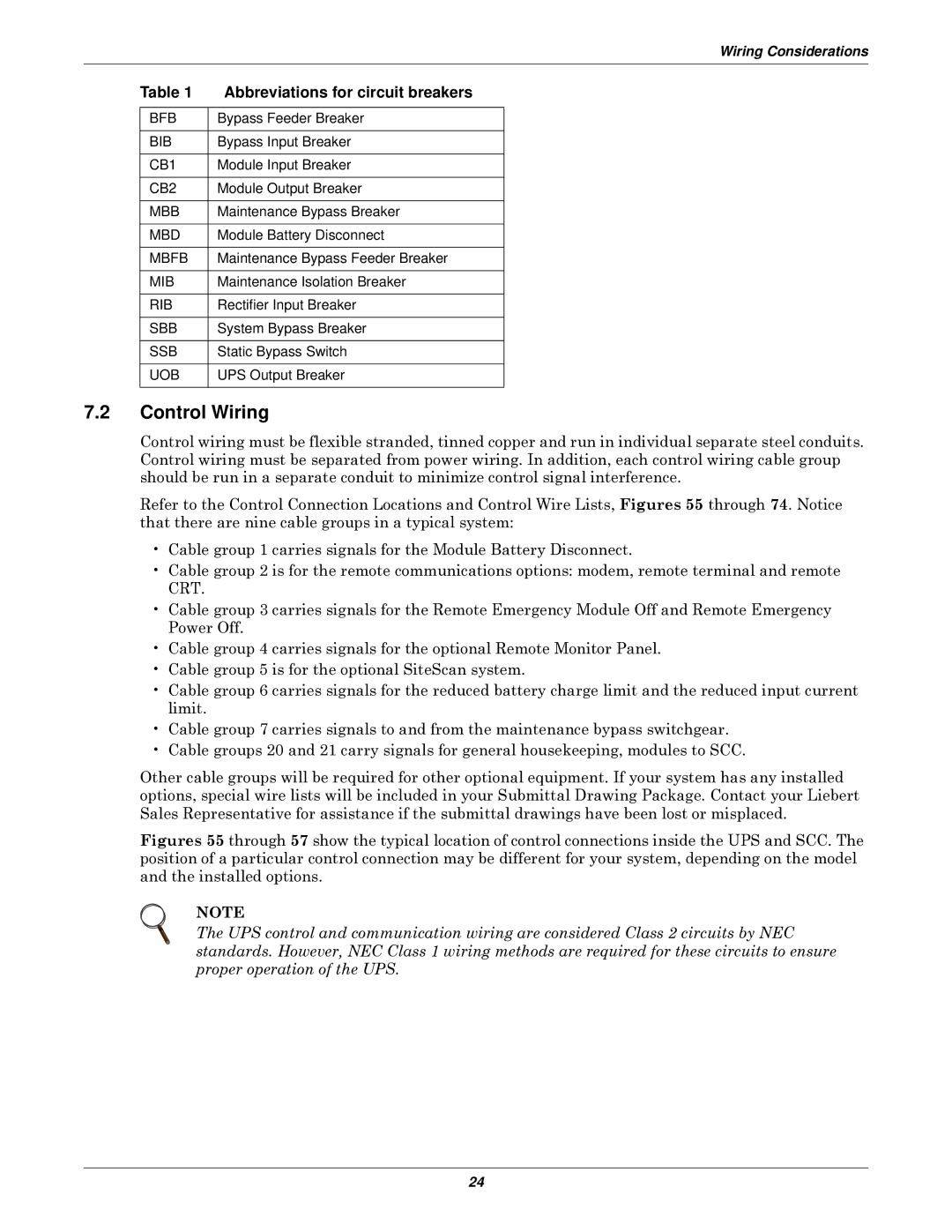
Wiring Considerations
Table 1 | Abbreviations for circuit breakers |
|
|
BFB | Bypass Feeder Breaker |
|
|
BIB | Bypass Input Breaker |
|
|
CB1 | Module Input Breaker |
|
|
CB2 | Module Output Breaker |
|
|
MBB | Maintenance Bypass Breaker |
|
|
MBD | Module Battery Disconnect |
|
|
MBFB | Maintenance Bypass Feeder Breaker |
|
|
MIB | Maintenance Isolation Breaker |
|
|
RIB | Rectifier Input Breaker |
|
|
SBB | System Bypass Breaker |
|
|
SSB | Static Bypass Switch |
|
|
UOB | UPS Output Breaker |
|
|
7.2Control Wiring
Control wiring must be flexible stranded, tinned copper and run in individual separate steel conduits. Control wiring must be separated from power wiring. In addition, each control wiring cable group should be run in a separate conduit to minimize control signal interference.
Refer to the Control Connection Locations and Control Wire Lists, Figures 55 through 74. Notice that there are nine cable groups in a typical system:
•Cable group 1 carries signals for the Module Battery Disconnect.
•Cable group 2 is for the remote communications options: modem, remote terminal and remote CRT.
•Cable group 3 carries signals for the Remote Emergency Module Off and Remote Emergency Power Off.
•Cable group 4 carries signals for the optional Remote Monitor Panel.
•Cable group 5 is for the optional SiteScan system.
•Cable group 6 carries signals for the reduced battery charge limit and the reduced input current limit.
•Cable group 7 carries signals to and from the maintenance bypass switchgear.
•Cable groups 20 and 21 carry signals for general housekeeping, modules to SCC.
Other cable groups will be required for other optional equipment. If your system has any installed options, special wire lists will be included in your Submittal Drawing Package. Contact your Liebert Sales Representative for assistance if the submittal drawings have been lost or misplaced.
Figures 55 through 57 show the typical location of control connections inside the UPS and SCC. The position of a particular control connection may be different for your system, depending on the model and the installed options.
NOTE
The UPS control and communication wiring are considered Class 2 circuits by NEC standards. However, NEC Class 1 wiring methods are required for these circuits to ensure proper operation of the UPS.
24
